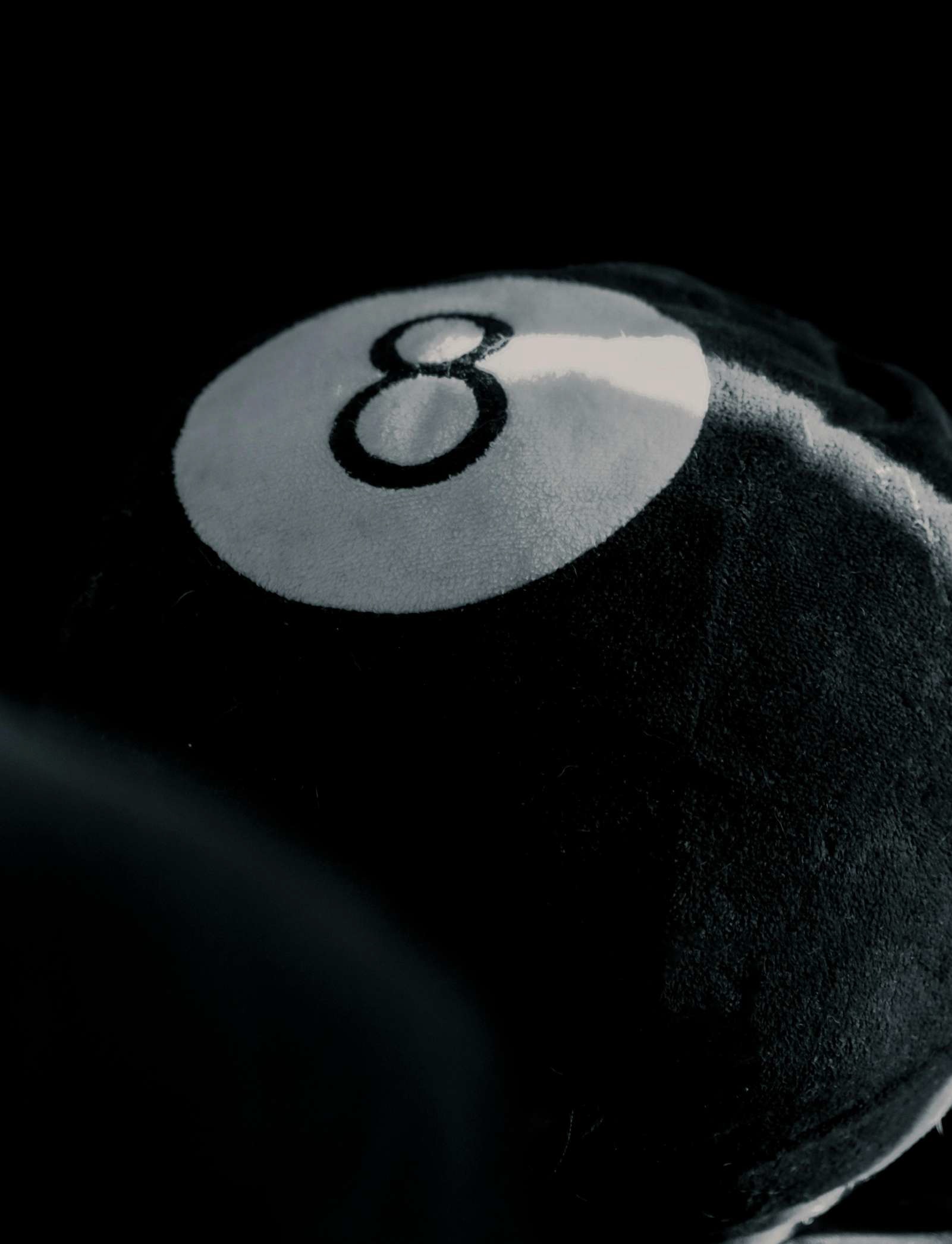Music Therapy and severe mental disorder: an intervention proposal in CRPS Arga.
DOI:
https://doi.org/10.59028/misostenido.2024.17Keywords:
Music therapy, severe mental disorder, mental health, schizophrenia, psychosocial interventionAbstract
Music therapy has a favourable effect on people suffering from mental disorders, providing benefits in areas such as self-esteem, self-realization and self-image, which are fundamental aspects of improving social skills and interpersonal relationships and will facilitate the process of social integration. It is important to work with this population and even more important to carry it out within a community context. After a bibliographic review and improved knowledge of the characteristics of this population, an intervention is proposed in the Arga Psychosocial Rehabilitation Center (CRPS Arga) in the San Juan/ Donibane neighbourhood (Pamplona). The main objective is the integration of these people into the community life of the neighbourhood, carrying out activities ranging from the most internal work, with the users in the centre itself, to external work, with a musical group formed by neighbours, to finally become an active part of the festive events and the social life of the neighbourhood. The evaluation was carried out using a record sheet and a Likert-type scale questionnaire. It can be affirmed that the development of the project contains all the necessary elements that will allow the execution of the proposed intervention.
Downloads
References
Aalbers, S., Fusar-Poli, L., Freeman, R. E., Spreen, M., Ket, J.C., Vink, A. C., Maratos, A., Crawford, M., Chen, X.J. y Gold, C. (2017). Music therapy for depression. Cochrane Data- base of Systematic Reviews. https://doi.org/10.1002/14651858.cd004517.pub3
Amir, D. (1996). Music Therapy-Holistic Model. Music Therapy, 14(1), 44–60. https://doi.org/10.1093/mt/14.1.44
Barcelona, C., García, M., García, L. R., García, A. C., Yasmina Millán, Y. y Garcés, P. (2021, 22 noviembre). Utilización de la musicoterapia como tratamiento adicional en pacientes esquizofrénicos crónicos. RSI-Revista sanitaria de investigación. https://www.revistasanitariadeinvestigacion.com/utilizacion-de-la-musicoterapia-como-tratamiento-adicional-en-pacientes-esquizofrenicos-cronicos/
Bradt, J. y Dileo, C. (2010). Music therapy for end-of-life care. Cochrane Database of Systematic Reviews. https://doi:10.1002/14651858.cd007169.pub2
Cara, C., y Morón Velasco, M. (2021). La construcción de la identidad a través del arte en personas en riesgo de exclusión social. Arteterapia. Papeles de arteterapia y educación artística para la inclusión social, 16, 11-22. https://doi.org/10.5209/arte.71152
Castle, T. (2007). Music therapy in schizophrenia. Master´s Thesis. https://www.academia.edu/5700936/Music_Therapy_in_Schizophrenia
Carr, C., Odell-Miller, H. y Priebe, S. (2013). A systematic review of music therapy practice and outcomes with acute adult psychiatric in patients. PloS one, 8(8), e70252. https://doi.org/10.1371/journal.pone.0070252
Conejo Cerón, S., Moreno Peral, P., Morales Asencio, J., Alot Montes, A., García-Herrera, J., González López, M., Quemada González, C., Requena Albarracín, J. y Moreno Küstner, B. (2014). Opiniones de los profesionales del ámbito sanitario acerca de la definición de trastorno mental grave: un estudio cualitativo. Anales del Sistema Sanitario de Navarra, 37 (2), 223–233. https://doi.org/10.4321/s1137-66272014000200005
Dattani, S., Rodés-Guirao, L., Ritchie, H. y Roser, M. (2023). Mental Health. In: OurWorld In Data.org. https://ourworldindata.org/mental-health
De la Fuente-Tomas, L., Sánchez-Autet, M., García-Álvarez, L., González-Blanco, L., Velasco, N., Sáiz Martínez, P. A., Garcia-Portilla, M. P. y Bobes, J. (2019). Estadificación clínica en los trastornos mentales graves: trastorno bipolar, depresión y esquizofrenia. Revista de Psiquiatría y Salud Mental, 12 (2), 106–115. https://doi.org/10.1016/j.rpsm.2018.08.002
De Witte, M., Pinho, A. da S., Stams, G. J., Moonen, X., Bos, A. E. R. y van Hooren, S. (2020). Music therapy for stress reduction: asystematic review and meta-analysis. Health Psychology Review, 16(1), 134–159. https://doi.org/10.1080/17437199.2020.1846580
Edwards J. (2006). Music therapy in the treatment and management of mental disorders. Irish journal of psychological medicine, 23 (1), 33–35. https://doi.org/10.1017/S0790966700009459
Fattorini, A. y Gamella, D. (2021). Ética profesional en musicoterapia desde la perspectiva del musicoterapeuta. En Artes y humanidades en el centro de los conocimientos. Miradas sibre el patrimonio, la cultura, la historia, la antropología y la demografía. Ed. Dykinson
Fernández-Company, J. F., Gamella-González, D. J. y García- Rodríguez, M. (2024). Autoevaluación de la práctica en musicoterapia para el crecimiento profesional. En Mar, M., Molina, P., Gázquez, J. y Fernández, S. (comp.), Innovación en salud: Estrategias emergentes para la docencia y la investigación. Cap. 4 (pp. 27-33). Asunivep Ed.
Freitas, C., Fernández-Company, J. F., Pita, M. F. y García-Rodríguez, M. (2022). Music therapy for adolescents with psychiatric disorders: An overview. Clinical Child Psychology and Psychiatry. https://doi.org/10.1177/13591045221079161
Geretsegger, M., Mössler, K. A., Bieleninik, U., Chen, X. J., Hel- dal, T. O. y Gold, C. (2017). Music therapy for people with schizophrenia and schizophrenia-like disorders. Cochrane Database of Systematic Reviews, 2017(5). https://doi.org/10.1002/14651858.cd004025.pub4
Gold, C., Heldal, T. O., Dahle, T. y Wigram, T. (2005). Music therapy for schizophrenia or schizophrenia-like illnesses. Cochrane Database of Systematic Reviews. https://doi.org/10.1002/14651858.cd004025.pub2
Goldman, H. H., Gattozzi, A. A. y Taube, C. A. (1981). Defining and Counting the Chronically Mentally III. Psychiatric Services, 32 (1), 21–27. https://doi.org/10.1176/ps.32.1.21
Hannibal, N., Pedersen, I. N., Hestbæk, T., Sørensen, T. E. y Munk-Jørgensen, P. (2012). Schizophrenia and personality disorder patients’ adherence to music therapy. Nordic Journal of Psychiatry, 66 (6), 376–379. https://doi.org/10.3109/08039488.2012.655775
Hegde, S. (2017). Music therapy for mental disorder and mental health: the untapped potential of Indian classical music. BJPsych international, 14 (2), 31–33. https://doi.org/10.1192/s2056474000001732
Ivanova, E., Panayotova, T., Grechenliev, I., Peshev, B., Kolcha- kova, P. y Milanova, V. (2022). A Complex Combination Therapy for a Complex Disease–Neuroimaging Evidence for the Effect of Music Therapy in Schizophrenia. Frontiers in Psychiatry, 13. https://doi.org/10.3389/fpsyt.2022.795344
Lillo, N., y Roselló, E. (2001). Manual para el Trabajo Social Comunitario . Narcea. https://doi.org/10.4321/s0211-57352007000100016
Loroño, A. (1996). Esquizofrenia y Musicoterapia. Revista Interuniversitaria de Formación del Profesorado, 26, 93-110
MacDonald, S. (2015). Client Experiences in Music Therapy in the Psychiatric Inpatient Milieu. Music Therapy Perspectives, 33 (2), 108–117. https://doi.org/10.1093/mtp/miv019
Martínez Morales, N. (2014). Musicoterapia en salud mental (clase magistral). Universidad Autónoma de Madrid, Madrid, España.
Montánchez, Mº L. y Peirats, J. (2012). El musicoterapeuta y sus prácticas metodológicas en la reeducación de la esquizofrenia. Educatio Siglo XXI. 30(2), 313-332
Murow Troice, E. y Unikel Santoncini, C. (1997). La musicoterapia y la terapia de expresión corporal en la rehabilitación del paciente con esquizofrenia crónica. Salud mental, 20, (3), 35–40.
http://www.revistasaludmental.mx/index.php/salud_mental/article/view/658/657
Ortega Calderón, M. N. (2017). Musicoterapia y salud mental: prevención, asistencia y rehabilitación. Revista De Investigación en Musicoterapia, 1, 151–153.
Poch, S. (2011). Musicoterapia para pacientes psiquiátricos adultos y niños. En Compendio de musicoterapia T1. Herder Editorial.
Pokharel, R. (2021). Impact of Music on Mental Health. MedS Alliance Journal of Medicine and Medical Sciences, 1(1), 101–106. https://doi.org/10.3126/mjmms.v1i1.42959
Puchol Martinez, I (2020): Memoria de prácticas CRPS AR- GA. Máster en Psicología general
Rosen, C., Marvin, R., Reilly, J. L., DeLeon, O., Harris, M. S., Keedy, S. K., Solari, H., Weiden, P. y Sweeney, J. A. (2012). Phenomenology of First-Episode Psychosis in Schizoph- renia, Bipolar Disorder, and Unipolar Depression. Clinical Schizophrenia y Related Psychoses, 6(3), 145–151A. https://doi.org/10.3371/csrp.6.3.6
Sabbatella, P. (2007). Música e identidad: Musicoterapia grupal en esquizofrenia. Interpsiquis.
Salvador, M. y Martínez, D. (2013). Grupo de musicoterapia en un Centro de Día para personas con trastorno mental grave. Rehabilitación Psicosocial, 10 (1), 30-34
SAMHSA (2021). Mental illness. From National Survey on Drug Use and Health (NSDUH). National Institute of ment al health. https://www.nimh.nih.gov/health/statistics/mental-illness
Sánchez Sosa, J. J. y Murow Troice, E. (2003). La experiencia musical como factor curativo en la musicoterapia con pacientes con esquizofrenia crónica. Salud mental, 26 (4), 47–58.
https://dialnet.unirioja.es/servlet/articulo?codigo=670493
Silverman, M. J. (2013). Effects of family-based educational music therapy on acute care psychiatric patients and their family members: An exploratory mixed-methods study. Nordic Journal of Music Therapy, 23(2), 99–122. https://doi.org/10.1080/08098131.2013.783097
Solli, H. P. y Rolvsjord, R. (2014). “The Opposite of Treatment”: A qualitative study of how patients diagnosed with psychosis experience music therapy. Nordic Journal of Music Therapy, 24 (1), 67–92. https://doi.org/10.1080/08098131.2014.890639
Van Assche, E., De Backer, J. y Vermote, R. (2015). Muziekthera pie bij depressie [Music therapy and depression]. Tijdschrift voor psychiatrie, 57(11), 823–829
Vázquez Campo, M. y Mouriño López, Y. (2013). ¿Tiene efecto terapéutico la música en pacientes que padecen esquizofrenia? Evidentia: Revista de enfermería basada en la evidencia, 10 (42).
https://dialnet.unirioja.es/servlet/articulo?codigo=4603393
Wang, S. y Agius, M. (2018). The use of Music Therapy in the treatment of Mental Illness and the enhancement of Societal Wellbeing. Psychiatria Danubina, 30(7), 595–600.
Wheeler, B. L. (1987). Levels of Therapy: The Classification of Music Therapy Goals. Music Therapy, 6(2), 39–49. https://doi.org/10.1093/mt/6.2.39
Tang Q, Huang Z, Zhou H. y Ye P. (2020) Effects of music therapy on depression: A meta-analysis of randomized controlled trials. PLoS ONE 15 (11): e0240862. https://doi.org/10.1371/journal.pone.0240862








